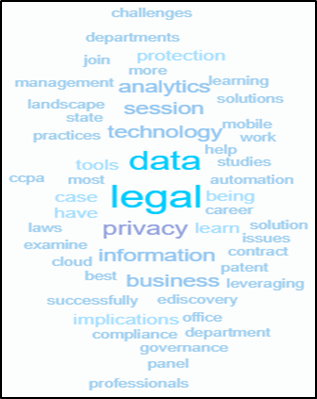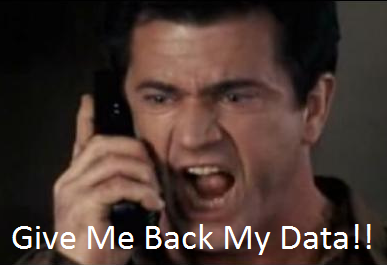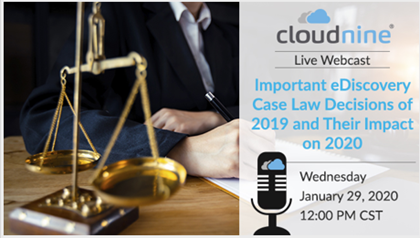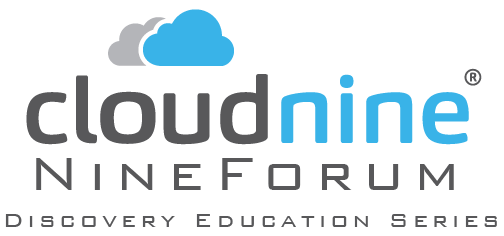Time for Another Legaltech Word Cloud(Nine): eDiscovery Trends
Time for Another Legaltech Word Cloud(Nine): eDiscovery Trends https://cloudnine.com/wp-content/uploads/2020/01/WordCloud2020.png 317 399 CloudNine https://cloudnine.com/wp-content/uploads/2020/01/WordCloud2020.pngSee what I did there? ;o) Yes, it’s Legalweek®! And, Legaltech® starts tomorrow! But, if you were to look at our latest word cloud, maybe the show should be called “Legaldata”? Or maybe “Legalpriv”?
read more







